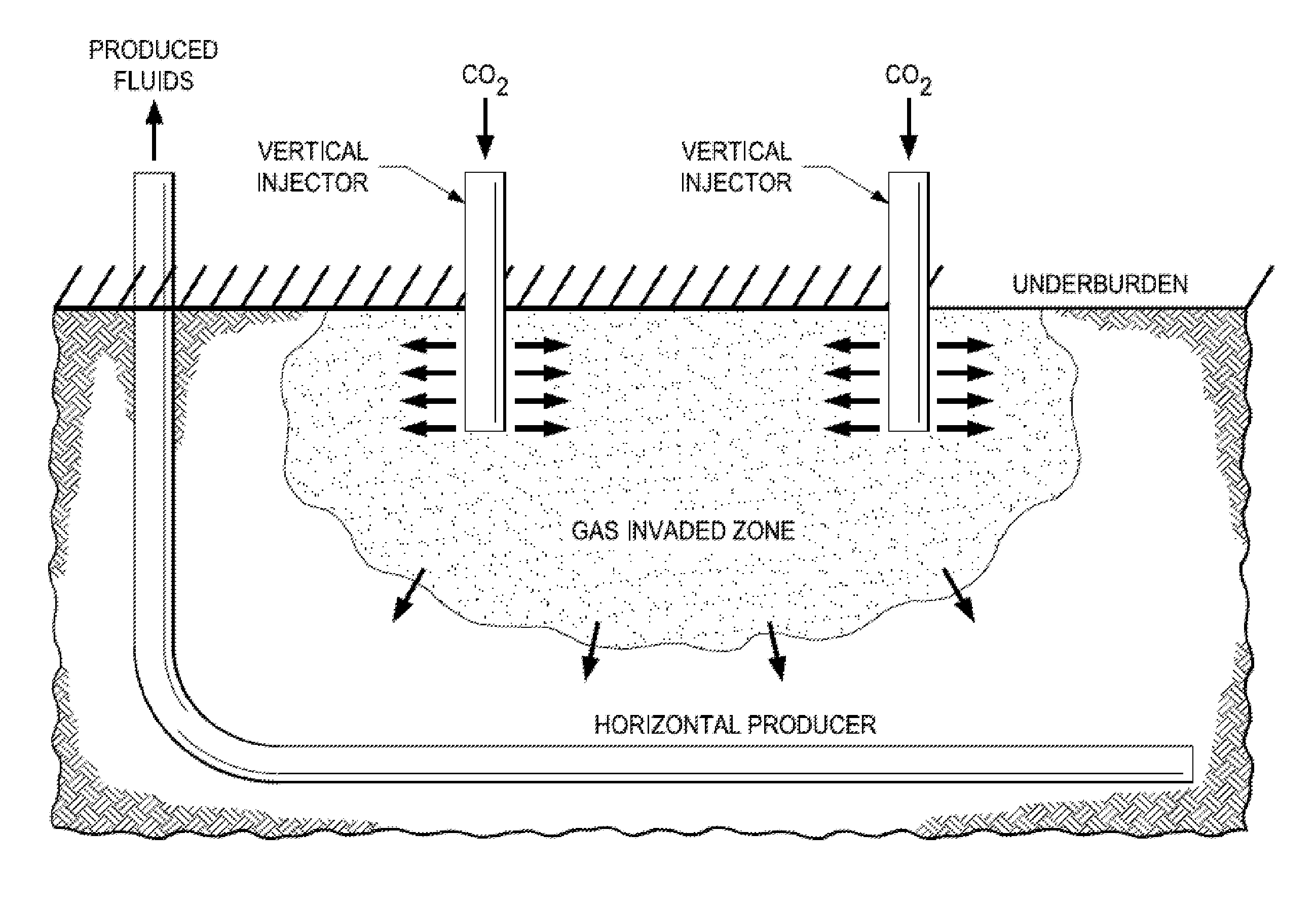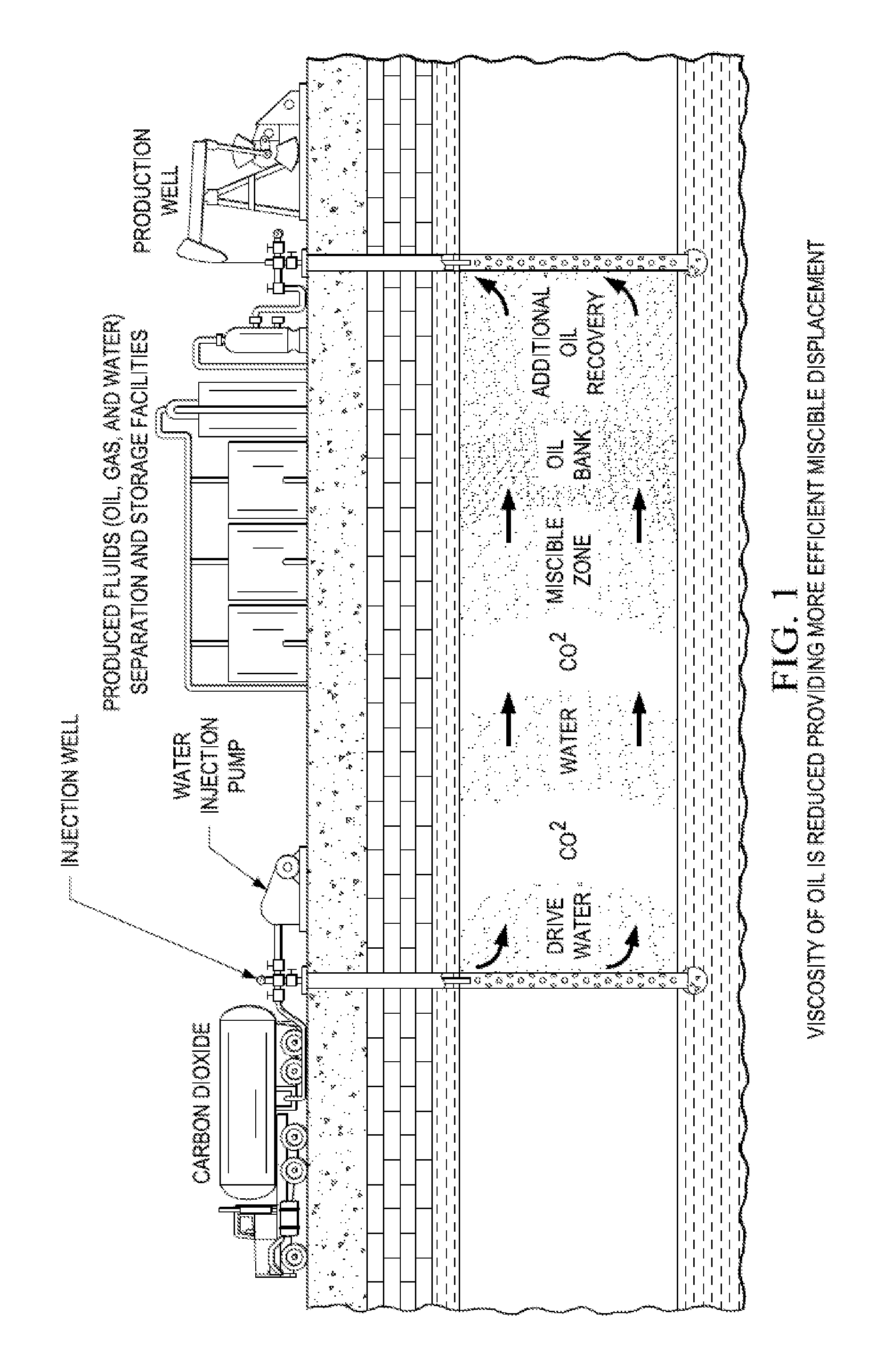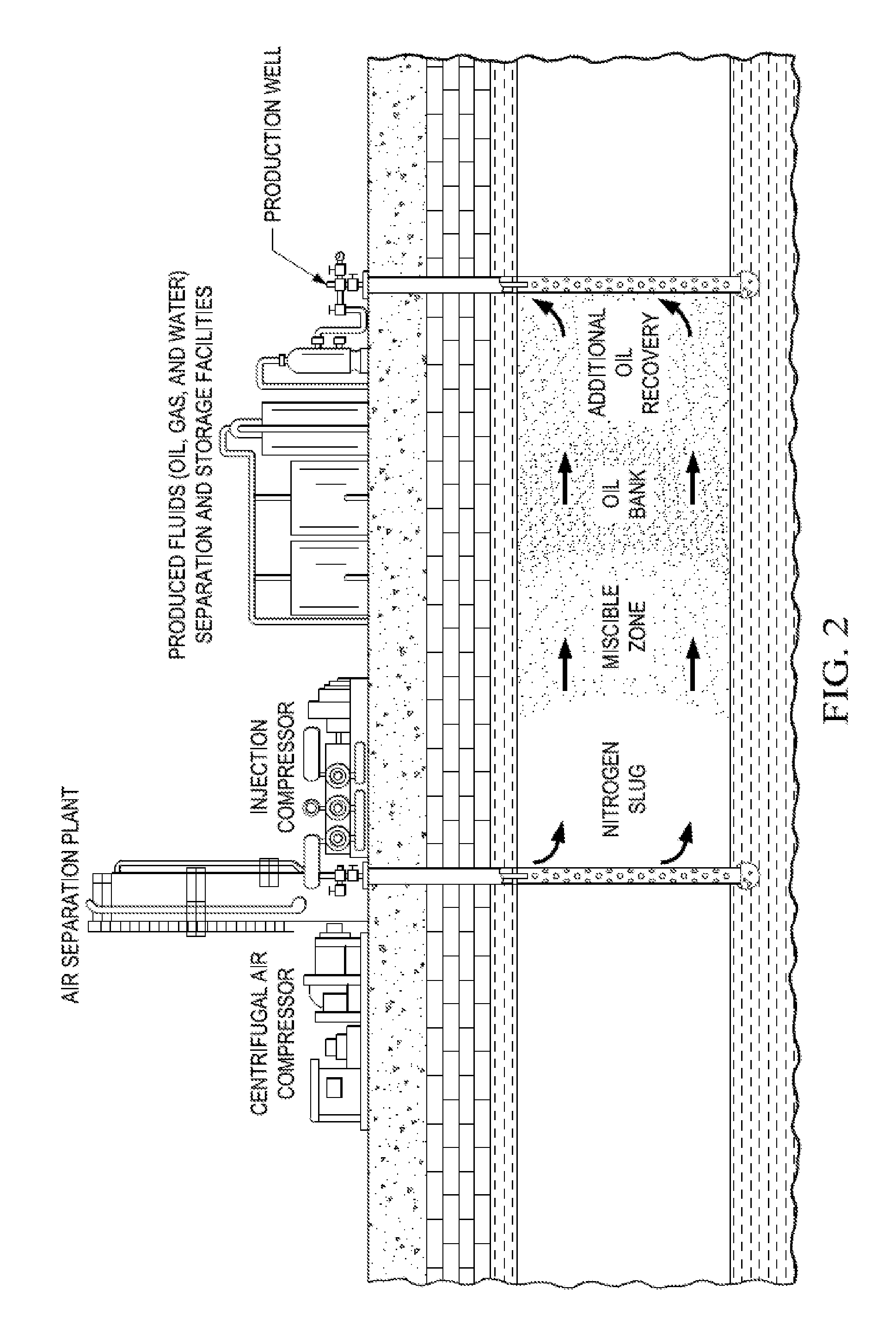Heavy oil production with EM preheat and gas injection
a technology of em preheating and heavy oil, applied in the direction of fluid removal, climate sustainability, borehole/well accessories, etc., can solve the problems of difficult production, difficult production, and difficulty in extracting oil from geological formations that are increasingly more difficult to reach, so as to achieve less energy consumption, avoid or reduce the effect of energy consumption
- Summary
- Abstract
- Description
- Claims
- Application Information
AI Technical Summary
Benefits of technology
Problems solved by technology
Method used
Image
Examples
Embodiment Construction
[0067]This invention uses electromagnetic radiation to heat a heavy oil reservoir followed by gas injection. Fluids that are immobile at initial reservoir conditions can be heated with electromagnetic radiation to allow pressure communication across the reservoir. Once sufficient mobility is achieved, injected gas can be used to mobilize the heavy oil in any of the gas injection techniques available in the art or to be developed.
[0068]The invention provides one or more embodiments, or any combination of embodiments, as described below:
[0069]An improved gas injection oil recovery process comprising one or more producer wells and one or more gas injector wells, wherein injection of gas into said gas injector wells drives oil towards said producer wells for production of said oil, the improvement comprising preheating oil with electromagnetic radiation so as to provide fluid communication between said production well and said injection well before or during said gas injection.
[0070]An ...
PUM
 Login to View More
Login to View More Abstract
Description
Claims
Application Information
 Login to View More
Login to View More - R&D
- Intellectual Property
- Life Sciences
- Materials
- Tech Scout
- Unparalleled Data Quality
- Higher Quality Content
- 60% Fewer Hallucinations
Browse by: Latest US Patents, China's latest patents, Technical Efficacy Thesaurus, Application Domain, Technology Topic, Popular Technical Reports.
© 2025 PatSnap. All rights reserved.Legal|Privacy policy|Modern Slavery Act Transparency Statement|Sitemap|About US| Contact US: help@patsnap.com



